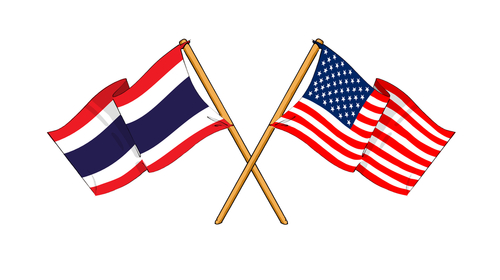United States citizens seeking to do business in Thailand have had special privileges available to them since 1833. The Treaty of Amity allows US nationals, as individuals or as businesses, to establish a 100% foreign-owned company with the same legal status as a local Thai entity, with very few restrictions.
What is the Treaty of Amity?
The Treaty of Amity and Economic Relations between the United States of America and the Kingdom of Thailand (the Treaty of Amity) was signed almost 200 years ago and reaffirmed on May 29, 1966. Under the treaty, US citizens and businesses can wholly own their businesses incorporated in Thailand. Furthermore, these businesses are treated as a Thai-owned business under most circumstances.
How is a Treaty of Amity company different from a foreign-owned company in Thailand?
Foreign-owned businesses in Thailand must comply with the Foreign Business Act (FBA). The FBA prohibits foreign businesses from certain business sectors and requires a Foreign Business License (FBL) for others. There are also different minimum capital requirements for foreign-owned businesses. Treaty of Amity companies go through a simplified and more streamlined process, receiving a Foreign Business Certificate from the Ministry certifying their status to operate in Thailand.
How are Treaty of Amity companies restricted?
Treaty of Amity companies receive preferential treatment compared to other foreign businesses, but there are certain constraints. While Treaty of Amity companies are exempt from the standard FBL industry restrictions, there are six sectors that Amity companies are prohibited from operating in:
- Communications.
- Inland or domestic transportation.
- Fiduciary functions (Money or property management for another party, e.g. investment adviser).
- Banking involving depository functions.
- Exploiting lands or natural resources.
- Domestic trade in local agricultural products (international/export trade is allowed).
Although Amity companies technically have the same status as majority Thai-owned companies, they cannot own land. And like all companies, they must comply with work permit rules.
Who qualifies for Treaty of Amity status?
To qualify for an FBC under the US-Thai Treaty of Amity, you must fulfil the following nationality and minimum capital requirements:
Nationality
A natural person who is a US citizen either by birth or naturalization.
OR
- A juristic person meeting the following criteria:
- Incorporated under US or Thai law.
- Shareholding:
- A majority of shares held by US citizens, either by birth or naturalization, and
- If a US shareholder is a juristic person, the majority of the juristic person’s directors and shareholders must be US persons.
- Directors
- A majority of directors must be US or Thai citizens, either by birth or naturalization.
Minimum Capital
If the Amity company plans to operate in one of FBA’s restricted industries (and not one of the six sectors listed above), the minimum capital required is Baht 3 million. Otherwise, the minimum capital requirement is Baht 2 million.
If a US citizen or business uses revenue from an already established Amity company or Thai business to establish a new Amity company, these minimums do not apply. However, statutory minimums still apply, and regulators retain their ordinary discretion in both cases, as it would apply to a Thai company.
An additional perk for Amity companies is that under Ministerial Regulation “Minimum Capital and the Period to Bring or Remit Minimum Capital to Thailand B.E. 2562 (2019),” they have until August 29, 2029, to pay up their minimum capital.
GPS Legal knows the Treaty of Amity
Establishing a company under the US-Thai Treaty of Amity is a quick, streamlined process. For those that qualify, the application process takes around 90 days from preparation to approval. This is fast compared to the FBL process, which takes at least four to six months, often longer. GPS Legal has experience in applying for Treaty of Amity status and for FBLs. If you are not sure what is the best course of action is for you, contact us today for a consultation.




